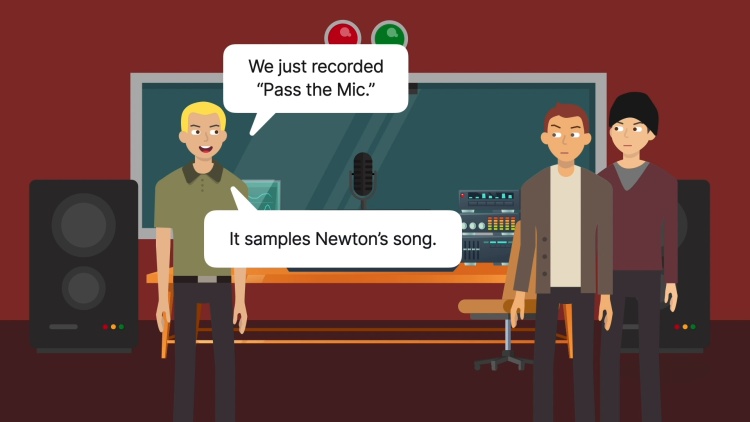Newton v. Diamond
United States Court of Appeals for the Ninth Circuit
388 F.3d 1189 (2004)

- Written by Cynthia (Anderson) Beeler, JD
Facts
Flutist James W. Newton (plaintiff) composed the song “Choir” in 1978. The song included vocals over flute music and incorporated elements from musical styles Newton heard in church as a child. Newton performed “Choir” in 1981 and assigned rights to the recording to ECM Records. Newton retained all composition rights. The sound recording and the composition were protected by separate copyrights. In 1992, the musical group the Beastie Boys (defendant) licensed portions of “Choir” from ECM Records to sample in the song “Pass the Mic.” The Beastie Boys did not obtain a license from Newton to use the underlying composition. The Beastie Boys sampled the first six seconds of “Choir” and looped it repeatedly throughout “Pass the Mic,” as well as in two remixes of “Pass the Mic.” The six-second segment included three notes and appeared only once in the 4.5-minute “Choir.” Although the score to “Choir” had notations about how certain portions should be played, Newton’s distinctive performance techniques and choices in the recording resulted in significant differences from what a generic performance of the work would sound like. Newton sued the Beastie Boys for infringement of his copyright covering the composition. The district court granted summary judgment to the Beastie Boys, finding that the sampled segment did not, by itself, meet the originality requirement for copyright protection, and that even if copyright protection did apply, the Beastie Boys’ use was not actionable because it was de minimis. Newton appealed.
Rule of Law
Issue
Holding and Reasoning (Schroeder, C.J.)
Dissent (Graber, J.)
What to do next…
Here's why 907,000 law students have relied on our case briefs:
- Written by law professors and practitioners, not other law students. 47,100 briefs, keyed to 996 casebooks. Top-notch customer support.
- The right amount of information, includes the facts, issues, rule of law, holding and reasoning, and any concurrences and dissents.
- Access in your classes, works on your mobile and tablet. Massive library of related video lessons and high quality multiple-choice questions.
- Easy to use, uniform format for every case brief. Written in plain English, not in legalese. Our briefs summarize and simplify; they don’t just repeat the court’s language.





